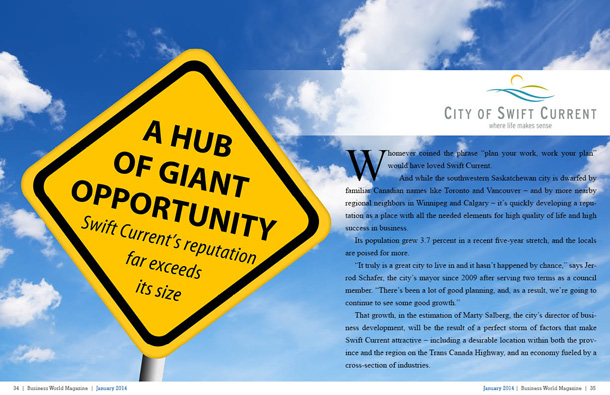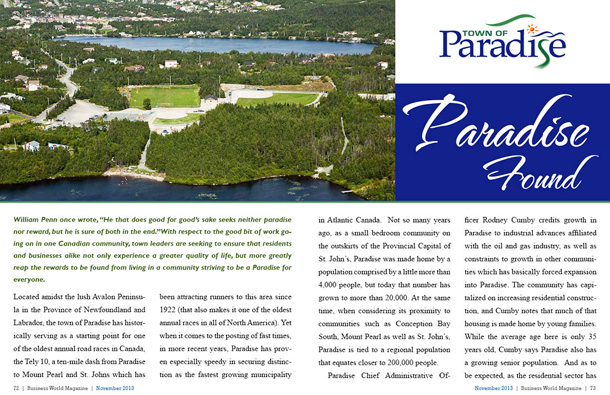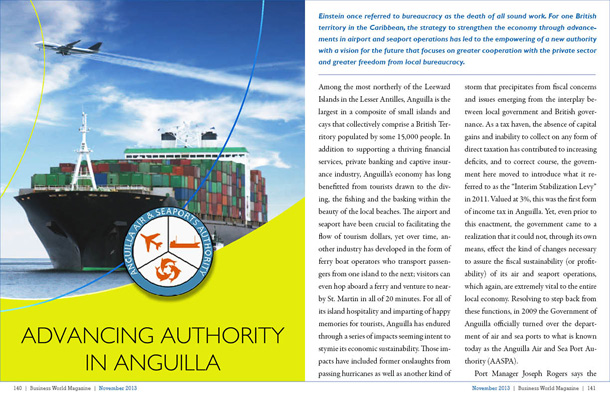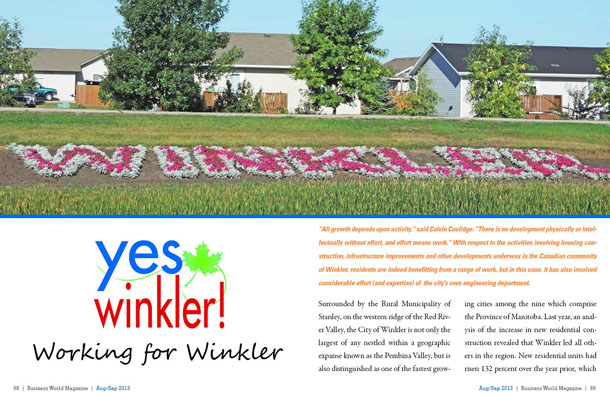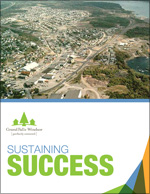
Communities around the world have been incentivized to develop sustainability platforms for a variety of reasons. For some, there is a need to improve infrastructure and expand LEED policies to achieve greater operational efficiency and cost-savings. Others simply focus on economic development or strategic businesses planning as a means of attracting new industries. Some only find their sustainability message following an unfortunate turn of events (such as the closing of key businesses), which in turn, compels action to better support existing enterprises. Very few communities are capable of effectively advancing initiatives with each of these three separate aspects in mind, yet in Canada, there is a community that has remarkably demonstrated where there is will, there is a way … that way leads to Grand Falls- Windsor.
Some five years ago, the town of Grand Falls-Windsor endured the closing of a pulp and paper mill which not only served as a critical resource in the supply of local products, but also represented one of the community’s leading suppliers of jobs. The economic impact was exacerbated by the great recession which followed, and while situations like this have decimated communities throughout North America, in Grand Falls-Windsor, the challenge was viewed as an opportunity to revitalize. The implementation of that strategy has not only allowed Grand Falls-Windsor to weather the storm, but standout as a true success story on sustainability.
“The mill closing was not unexpected, but the businesses that supplied the mill felt it,†says Director of Engineering and Works, Jeff Saunders. “What’s interesting is we lose a major employer, but things rebound as opposed to implode.â€
From an action standpoint, Grand Falls-Windsor focused their sustainability efforts towards the creation of new industries. A consistent local industry of mining, a community driven salmon project spearheaded, and lastly (and possibly most impressive) developing a significant healthcare industry; arguably the most sustainable and biggest industry in the world.
A local group, the Environment Resource Management Association, worked towards a successful and sustainable project for salmon fishing by further developing the Exploits River. As one of the longest rivers in Newfoundland/Labrador, the Exploits River facilitates the farthest path for Atlantic salmon to swim, leading directly to Grand Falls-Windsor. The initiative as a whole has helped increase salmon totals from 15,000 to more than 50,000, in turn, driving the local industry and economy, as well as increased flow of tourism.
The move into healthcare, which now employees over a thousand locally, was a joint project with local Memorial University whose development of a health research office was jointly funded by ACOA’s Community Adjustment Fund, the Department of Innovation, Trade and Rural Development Regional/Sectoral Diversification Fund, and the Canadian Institutes of Health Research. To promote further, Mayor Allan Hawkins explains, “Over the past two years, Moneysense Canada, has ranked the town number 1 and number 2 for Doctors per capita in Canada.â€
Even while there was planning to develop new industries, and a focus on helping expand operations for existing industries, there was a surprisingly consistent growth in Grand Falls-Windsor’s residential population. “There was a domino effect in which we experienced growth during the closure of the mill. People who had moved from the city in their 20’s and 30’s now were coming back,†says Mary Wong, Community Planner for the Town of Grand Falls-Windsor.
Even with a rise in population and a plan to develop new business, there were still other chapters of local sustainability that town hall wanted in place.
“In the last couple years we have done several studies; a transportation plan, a parks plan, focus and research on where we should be spending money, and the development of a new civic building which will be LEED silver certified,†says Mayor Hawkins. While LEED certified buildings remain a policy for Canada’s biggest cities, for the Town of Grand Falls-Windsor (population of around 13,000), it is a clear example of a community committing to a sustainable vision.
While the levels of sustainability action are unprecedented for a community of this size, the town also has looked to the future; LED lights and a partnership with Newfoundland Power to eventually have all green power, developing unique industries with 100 acres of cranberry farming and a pesticide free, thriving bee-pollination business, and lastly, looking to further promote economic development with a push on bringing in major US data centres. “Data centers consume a lot of power, owners are looking for green power and to reduce their carbon footprint,†says Saunders. “When you look at the advantage Newfoundland/Grand Falls-Windsor has in comparison to companies located in New York and New Jersey with taxes, hydro, climate, cooling, latency not being an issue, and of course natural disasters†which obviously saw data centers along the eastern seaboard get rocked by Hurricane Sandy.
Needless to say, the future is bright for Grand Falls-Windsor. In the five years that have followed since the biggest employer shut down and a recession crippled North America, they have developed new industries, experienced population and economic growth, and were recently awarded in Atlanta by the Fulton County Development Authority with an International Partnership award.
Beyond the growth in population and enterprise, and enhancements to urban corridors, Grand Falls-Windsor has not neglected its commitment to other habitats. Leaders have also put great effort into the protection of ecologically-sensitive wetlands. As a long-time partner with Ducks Unlimited, the town has significantly expanded a protected area to better mitigate impacts from increasing development. It is not, however, only the mindset of the environment that has triggered this movement.
“Wetland habitat affects our environment significantly,†affirms Wong. “We have made sure that our buffer is consistent around two major ponds. We have developed this environmental use, for our trail systems, for long term protection, but also a new opportunity for the buffer to exist for social sustainability. Residents can get away from urban life and enjoy nature, understand climate change and how important it is to protect our environment.â€
As Grand Falls-Windsor continues to advance on practices that support business while enhancing the quality of life for residents as well as wildlife, this a community that not only fulfills the city’s familiar logo as being “Perfectly Centered,†but is also now more perfectly positioned for future prosperity.
For more information, please visit their website at: Â The Town of Grand Falls-Windsor


